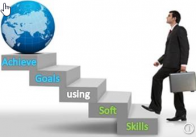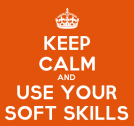Success factors for World-Class Procurement in Today's World
Kirjoitettu: 14.6.2016
Procurement in Today's World
Procurement in today’s world is not anymore just sourcing, negotiating and sending purchase orders etc... In today’s corporate world procurement is quite often the biggest change agent in the whole company. Hardly any other function goes so cross-functional and has so big impact on the P&L last line. Therefore the procurement persons need to have new skill sets and behaviors, especially the SOFT SKILLS.
It’s crucial to honestly estimate, if the current people have the right skill sets and right attitudes to develop themselves. Sometimes it can be that the hard bargainers can’t fit e.g. into a role of collaborative supplier relationships leader. Don’t understand me wrong, also the hard but fair bargainers are needed, but besides them also other type of personalities are needed to be there. And if the change is needed fast, quite often you have to recruit these persons with other types of skill sets from external companies to get the momentum.
Cross-functional Stakeholder Management
Quite many companies have started to understand the hidden potential of the procurement as the change leader spearheads. In my previous company Outotec procurement was forerunner within the global procurement community on the way towards the whole company’s one way of working. These first experiencies were later benchmarked also for the other functions own journeys.
Procurement’s initial right to exist is to support the business by best value/cost –ratio products, on-time deliveries and right qualities. However in being successful with this goal, one of the most important element which procurement must pay really close attention is cross-functional stakeholder management. The stakeholders must be involved in various steering groups for procurement to add the true business flavour into the bigger procurement guidelines. They must all have a feeling, that this change journey is ”our” journey, not just something procurement tries to do on it’s own. In my previous company we had cross-functional stakeholder involvement in all levels of the procurement:
1) Product Supply Strategies to define the procurement needs for the future and proper alignment to business targets and needs,
2) Supply Base Steering groups to agree main guidelines for the biggest supplier base development directions,
3) Category strategies for defined material groups and
4) Supply Base Development projects to do the scoped in-the-field sourcing work.
All these various level stakeholder involvement arenas paved the way for joint decisions and more importantly for joint commitment. Also the expectation management is crucial; even if you would like to do many parallel things to serve the business, don’t overestimate the resources and overpromise. It’s even better to underpromise and overperform.
Multi-Cultural Teams
In current global world we live, quite often we have multi-cultural teams to lead. So the broader understanding we have on the various cultures and their ways of working and behaviour patterns, the better leaders we can be for the groups. Even within one culture there are various behaviour patterns. One very commonly used method to understand these differencies is Myers-Briggs Type Indicator (MBTI) to indicate how various people observe the world and make decisions. We used this method quite widely for our collegues and team members and it really helped to understand why certain people behaved in totally different manner than the others in the exactly same situation. And when knowing, which MBTI-types the collegues or team members were, it helped to modify own communication/involvement ways with them. This MBTI-framework is also helping to understand that underneath every fact there is certain behaviour and underneath that personal feelings and underneath that our assumptions and motivational roots. And understanding that e.g. before the behaviours or feelings will truly change, the underneath assumptions must change first.
True Leadership
Also be brave enough to show true leadership. One very effective method for team-building is ”Triangle of tensions”, where are three elements to evaluate;
1) Who you really are
2) What is your canned role = what people expect from you and
3) Emergent reality – what is really happening.
I have used this method several times and I am always so thrilled to see the speed how people get bonded together in smaller groups. I have witnessed several times, when people are revealing even painful topics from their own private or work lives in confidence to the smaller group and the leaders exposing their vulnerability to the others. It is truly an effective way to bond with the others and have amazingly deep levels of TRUST in each others in just 1-2 days.
Supplier's Know-How and Outsourcing
One very important value-add, which procurement can bring to the table is harnessing the supplier’s know-how and take them as part into the product development and generate innovations. This is easier said than done, since we engineers tend to believe that our designs are the best in the world and nobody else can do it better. But it is our role in the procurement to challenge this status quo and try to get prosperous co-operation ongoing.
One emerging trend is also outsourcing of certain parts of the procurement or certain product/part portfolio. Companies have realized that they can’t focus 100% on every single part which is needed. Even in big companies with tens of procurement persons in various countries, they of course concentrate in the ”big fishes” with big values and strategic importance. But there are lots of ”smaller fishes” and so-called tails, for which nobody has the time to devote. And for these parts there are various sourcing/procurement companies out in the market to help in this, which is a true win-win situation for all parties. And this is also external stakeholder network management.
Summary
As a summary, it is actually amazing to see, that in today’s world-class procurement the actual function knowledge is of course important, but much more important are the ”softer” skills; stakeholder management and getting joint commitments, true trust building, cross-cultural teams leadership skills, understanding people’s behavioral patterns and modifying your own actions based on those, driving supplier innovations etc… One Harward study showed that 85% of one’s success at the work place is attributed to soft skills and only 15% to technical skills…
And lastly, when keeping your stakeholders and teams informed about the joint plans and their progress, one golden rule is :
COMMUNICATE – COMMUNICATE – COMMUNICATE.

Jukka Ahvonen
Senior advisor
Global Sourcing Finland Oy
